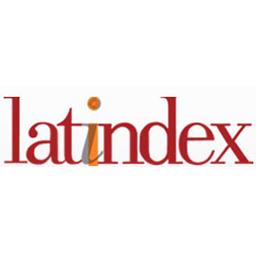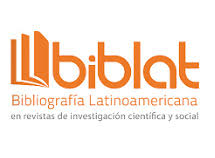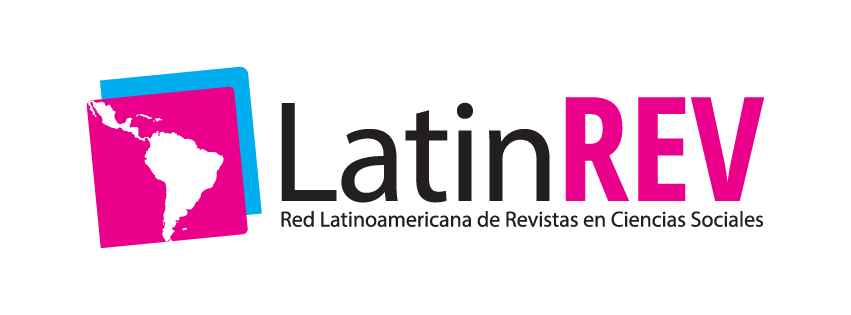Mujeres en el ecoturismo, ¿empoderamiento o perpetuidad de la desigualdad?
Resumen
Palabras clave
Texto completo:
PDFReferencias
Ariya, G. Sempele, C., y Simaloi, F. (2020). Local Maasai women empowerment through employment opportunity: lessons from base camp Maasai Brand in Maasai Mara, Kenya. En Baum, T. Ndiuini (Eds). Sustainable human resource management in tourism, Suiza: Springer.
Bayeh, E. (2016). The role of empowering women and achieving gender equality to the sustainable development of Ethiopia, Pacific Science Review B: Humanities and Social Science, 2, 37-42. https://doi.org/10.1016/j.psrb.2016.09.013
Benavides A. Capurro, L. Cáceres I., y Fraga, J. (2015). Turismo y ocio: mercantilización y consumo de espacios, lugares, objetos y emociones. En Fraga, J. Khafash, L. Córdova, J. (Coords). Turismo y ocio. Reflexiones sobre el caribe mexicano, Pasos, (pp. 25-43). https://dialnet.unirioja.es/servlet/libro?codigo=582793
Blamey, R. K. (2001). Principles of ecotourism. En Weaver, D. The encyclopedia of ecotourism, Ney York: CAB Publishing.
Brenner, L., y San German, S. (2012). Gobernanza local para el ‘ecoturismo’ en la Reserva de la Biosfera Mariposa Monarca, México”, Alteridades, 22 (44), 131-146. https://bit.ly/3gM2crk
Ceballos- Lascuráin, H. (1998). Ecoturismo. Naturaleza y Desarrollo Sostenible, México: Editorial Diana.
Delgado, O. (2003). Debates sobre el espacio en la geografía contemporánea, Bogotá: Universidad Nacional de Colombia.
Díaz-Carrión, I. (2014). Ecoturismo y vida cotidiana de las mujeres en Sontecomapan (Veracruz, México), Cuadernos de turismo, 34, 69-88. https://bit.ly/2XfMUU4
Díaz-Carrión, I. (2010). Ecoturismo comunitario y género en la Reserva de la Biósfera de los Tuxtlas (México), Revista Pasos, 8(1), 151-165. https://bit.ly/2ySG4e4
Ferguson, L. (2010). Turismo, igualdad de género y empoderamiento de las mujeres en Centroamérica, Papeles de relaciones ecosociales cambio global, 111, 123-133. https://bit.ly/3dmcJra
García, I. Pompa, S., y López, A. (2017). Ecoturismo como herramienta para promover el empoderamiento: el caso del Ejido San Francisco en el Área de Protección de Flora y Fauna Sierra de Álvarez, San Luis Potosí, El periplo sustentable, 32. https://bit.ly/2AwPImN
González, M. A. (2017). Breve recorrido por la historia del Feminismo, Historia Agenda UNAM, 106-112. https://bit.ly/2ZFtKsC
Horton, L. (2009). Economic and social impacts of Costa Rica’s ecotourism boom, Latin American Perspectives, 36(3), 93-107. DOI: 10.1177/0094582X09334299
Ibañez, R., y Rodríguez, I. (2012). Tipologías y antecedentes de la actividad turística: turismo tradicional y turismo alternativo. En Ivanova V. Ibañez, R. (Coords.) Medio ambiente y política turística en México, Tomo I Ecología, biodiversidad y desarrollo turístico, México: Secretaría de Medio Ambiente y Recursos Naturales-UABC.
Irandu, E., y Shah, P. (2014). The role of ecotourism in promoting women empowerment and community development: some reflections from Kenya, Journal of tourism and hospitality management, 2(6), 245-259. DOI: 10.17265/2328-2169/2014.06.002
Kunjuraman, V., y Hussin, R. (2016). Women Participation in Ecotourism Development: Are They Empowered? World Applied Sciences Journal, 34(12), 1652-1658. DOI: 10.5829/idosi.wasj.2016.1652.1658
Lefebvre, H. (1983). La presencia y la ausencia, contribución a la teoría de las representaciones, México: Fondo de cultura económica.
Lenao, M., y Basupi, B. (2016). Ecotourism development and female empowerment in Botswana: a review, Tourism Management Perspectives, 18, 51–58. http://dx.doi.org/10.1016/j.tmp.2015.12.021
Little, L. (2002). Gender and Rural Geography, Londres: Routledge.
Marcinek, A., y Hunt, C. (2015). Social capital, ecotourism, and empowerment in Shiripuno, Ecuador, International Journal, Tourism Anthropology, 4 (4), 327-342. DOI: 10.1504/IJTA.2015.074005
Martínez, B. (2003). Género, sustentabilidad y empoderamiento en proyectos ecoturísticos de mujeres indígenas, Revista de Estudios de Género. La Ventana, 17, 188-217. https://www.redalyc.org/pdf/884/88401708.pdf.
Mayyet, Y., Villarraga, L., y Rodríguez, S. (2017). Young farmer´s perceptions about forest| management for ecotourism as an alternative for development, in Puebla, Mexico, Sustainability, 9, (1134), 1-13. DOI:10.3390/su9071134
Medeiros, M. (2014). The other end of the bargain: the socioeconomics of marital dissolution in rural northeast Brazil, Transforming Anthropology, 22 (2), 105–120. DOI: 10.1111/traa.12032
Mendoza, M. (2018). Alpine masculinity: a gendered figuration of capital in the Patagonian Andes, Bulletin of Latin American Research, 1-15. DOI:10.1111/blar.12839
Monterrubio, C., y Espinosa B. (2013). “Characterisation of ecotourism employment in a developing world destination”, GeoJournal of Tourism and Geosites, año 6, 11(1), 54-65. http://gtg.webhost.uoradea.ro/
Ogra, M. V., y Badola, R. (2015). Gender and climate change in the Indian Himalayas: global threats, local vulnerabilities, and livelihood diversification at the Nanda Devi Biosphere Reserve, Earth System Dynamics, 6, 505–523. DOI:10.5194/esd-6-505-2015
OMT. (2019). Global Report on Women in Tourism, Organización Mundial del Turismo. Consultado el 20 de mayo de 2020. https://bit.ly/2zWTCVO
OMT. (2013). Press Release PR13001, Organización Mundial del Turismo, Consultado el 25 de mayo de 2020. https://bit.ly/2PU5xtM
Panta, S. K., y Thapa, B. (2017). Entrepreneurship and women's empowerment in gateway communities of Bardia National Park, Nepal, Journal of Ecotourism. DOI:10.1080/14724049.2017.1299743
Rojas-Serrano, C., y Martínez-Corona, B. (2017). Transformations and continuities in the management and conception of the forest and gender relations in Santa Catarina Lachatao, Oaxaca, Agricultura, Sociedad y Desarrollo, 14(3), 451-478. https://bit.ly/2XJJW9v
Rodríguez, G., y Acevedo, A. (2015). Cambios en la vida cotidiana de las mujeres a través de la incorporación al trabajo turístico en El Rosario, Michoacán, México, El periplo sustentable, 29, 5-33. http://hdl.handle.net/20.500.11799/58911
Sabaté, A. Rodríguez, J., y Díaz, M. (1995). Mujeres, espacio y sociedad, hacia una geografía de género, Editorial Síntesis.
Sánchez, M., y Winkler, R. (2019). The Third Shift? Gender and Empowerment in a Women’s Ecotourism Cooperative, Rural Sociology, 0(0), 1–28. DOI: 10.1111/ruso.12275
Scheyvens, R. (2000). “Promoting women's empowerment through involvement in ecotourism: experiences from the third world”, Journal of Sustainable Tourism, 8(3), 232-249. DOI: 10.1080/09669580008667360
Soares, D. (2005). Género, ambiente y desarrollo en el Valle de Vizcaíno, Baja California Sur, Relaciones. Estudios de historia y sociedad, 26(103), 94-132. http://www.redalyc.org/articulo.oa?id=13710304
Swain, M. B. (1995). Gender in tourism. Annals of Tourism Research, 22(2), 247–266. DOI:10.1016/0160-7383(94)00095-6
Towne, C. (2017). Strength, mobility, and variety: central discourses which undermine tourism’s ability to subvert broader gender orders in Botswana, African Studies, 1-22. DOI: 10.1080/00020184.2017.1285668
Tran, L., y Walter, P. (2014). Ecotourism, gender and development in northern Vietnam, Annals of Tourism Research, 44, 116–130. http://dx.doi.org/10.1016/j.annals.2013.09.005
Utami, T. Setyono, P. Astuti, I., y Suntoro, S. (2016). Adaptation management on climate change: study of women role in forest and land conservation at the upstream of bengawan solo watershed, International conference on climate change, 36-41. DOI: 10.15608/iccc.y2016.548
Vargas del Río, D., y Brenner, L. (2012). Ecoturismo comunitario y conservación ambiental: la experiencia de La Ventanilla, Oaxaca, México, Estudios sociales, 21(41), 32-63. https://bit.ly/2XxUpWI
Zeng, F. Zhou, C., y Zhong, Y. (2018). Ecotourism Development and the Egocentric Network of female residents: A Case Study in Zhangjiajie National Forest Park, Journal of China tourism research, 14(4), 484–500. https://doi.org/10.1080/19388160.2018.1511491
Enlaces refback
- No hay ningún enlace refback.
Copyright (c) 2021 Regiones y Desarrollo Sustentable

Este obra está bajo una licencia de Creative Commons Reconocimiento 4.0 Internacional.
REGIONES Y DESARROLLO SUSTENTABLE
Año XXIII, No. 44, Enero-Diciembre, 2023, es una revista de publicación continua editada por El Colegio de Tlaxcala, A.C., Avenida Melchor Ocampo No. 28, Col. San Pablo Apetatitlán, Apetatitlán de Antonio Carvajal, Tlaxcala, C. P. 90600 Tel. 52 (246) 46 4 52 33, ext. 1135, http://www.coltlax.edu.mx/openj/index.php/ReyDS, rev_regionesydesarrollosustentable@coltlax.edu.mx Editor responsable: Arturo Juárez Martínez. Reserva de Derechos al Uso Exclusivo No., ISSN:2594-1429, otorgados por el Instituto Nacional de Derecho de Autor. Responsable de la última actualización de este número, Departamento de Ediciones de El Colegio de Tlaxcala, A.C., Arturo Juárez Martínez, Avenida Melchor Ocampo No. 28, Col. San Pablo Apetatitlán, Apetatitlán de Antonio Carvajal, C.P. 90600, fecha de última modificación: 02 de febrero de 2024.








